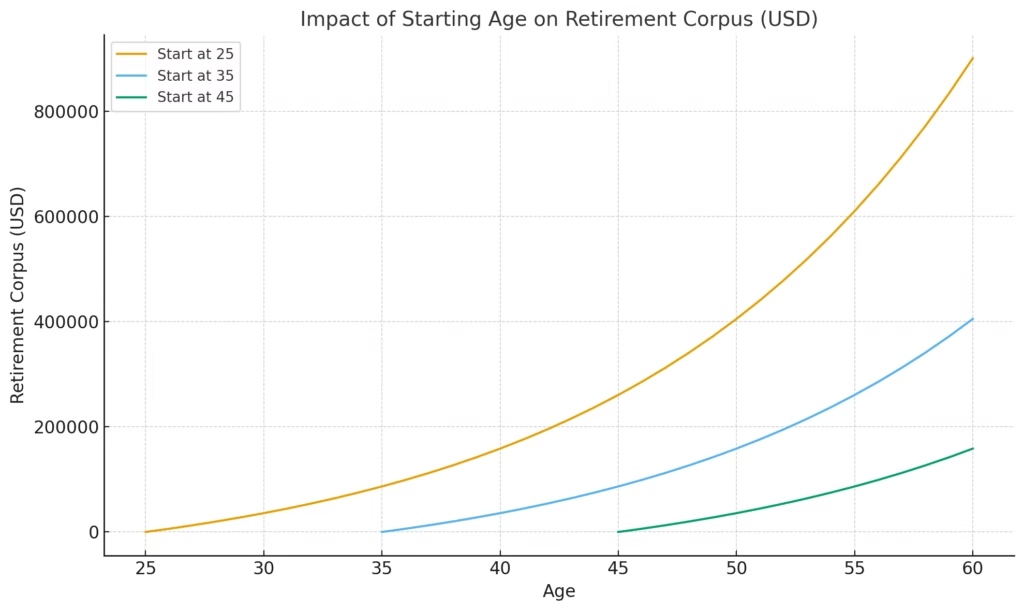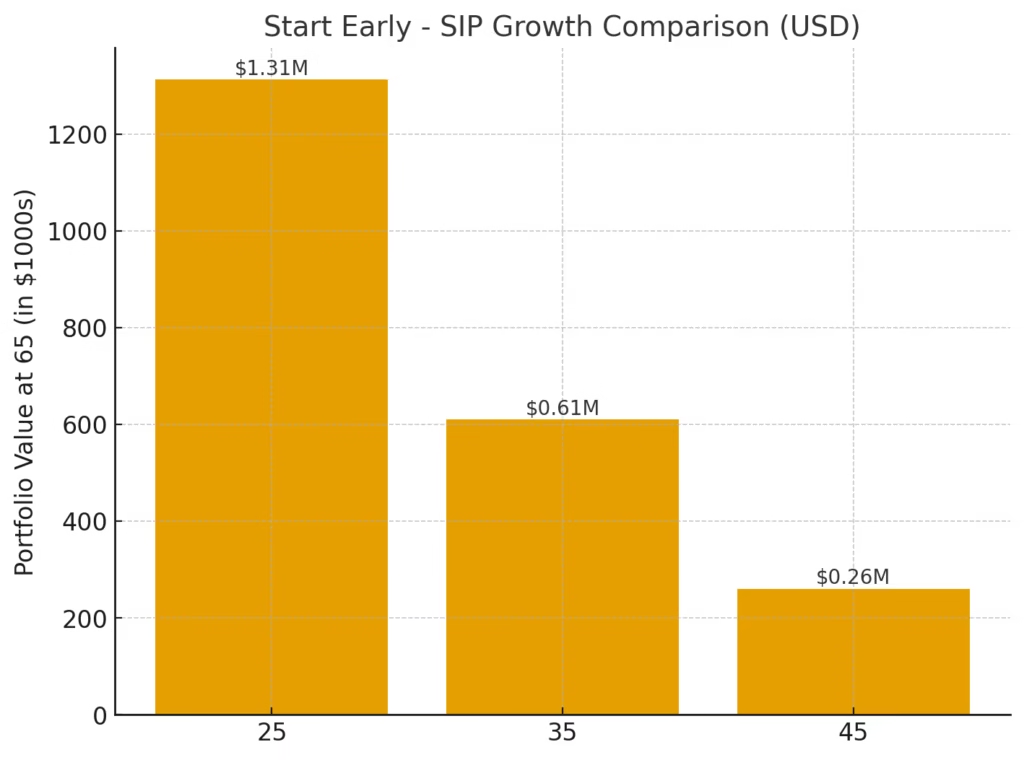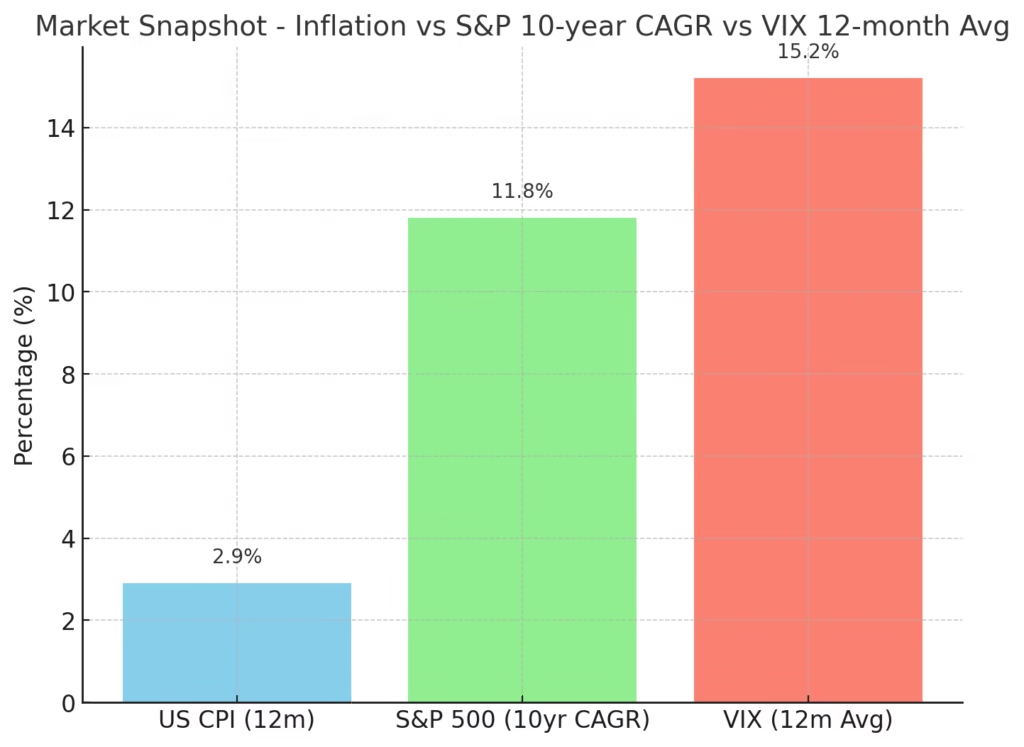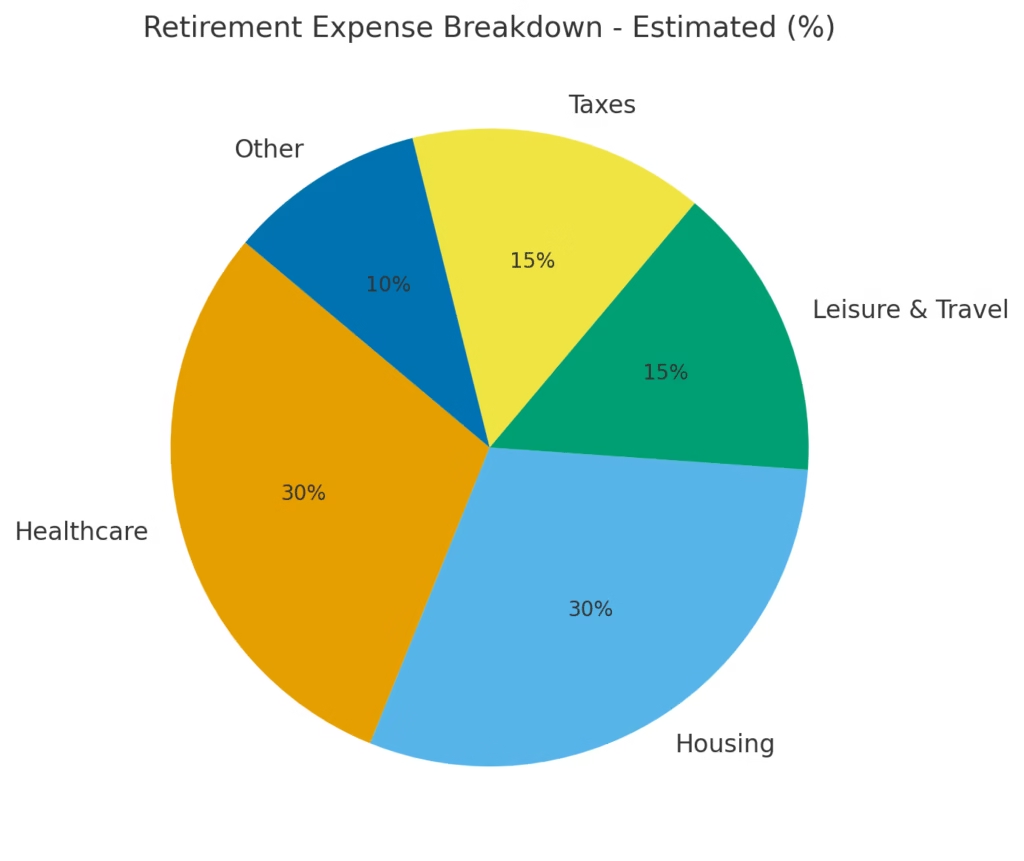
Retirement planning is one of the most important financial journeys you will ever take. Yet, surprisingly, millions of people across the US, UK, Canada, Singapore and Australia still make common retirement planning mistakes that could cost them peace of mind in later years. If you are wondering how to avoid these pitfalls, you are already ahead of many others. Today, we will explore retirement planning mistakes, practical retirement financial advice, and proven retirement planning advice you can follow immediately.
Think about this. If you were to retire tomorrow, would your savings and investments allow you to maintain your lifestyle comfortably for 20 to 30 years? If the answer is no or you are unsure, then this guide will help you prepare better.
Before we dive into the financial advice, let’s warm up with a quick quiz for you.
Question: Do you know how much you need to retire comfortably in your country? Share your guess in the comment section. We will revisit this question later with some calculations.

Mistake 1: Starting Retirement Planning Too Late
One of the most common retirement planning mistakes is delaying the process. Many people in their 20s and 30s assume they have plenty of time to start saving. However, the power of compounding works best when you start early. For example, someone who invests $500 a month at age 25 could retire with over a million dollars more than someone who begins at 40, even if both invest the same monthly amount.
The lesson here is clear. The earlier you begin retirement financial planning, the easier it becomes to secure your future. If you are already in your 40s or 50s, don’t panic. You can still catch up by increasing contributions and using tools like 401(k) catch-up contributions in the US or similar schemes in the UK, Canada and Australia.

Mistake 2: Ignoring Healthcare Costs
Healthcare is often the most underestimated expense in retirement. According to Fidelity, the average retired couple in the US may need over $300,000 for healthcare alone during retirement. Many retirees in Canada and the UK underestimate the out-of-pocket costs not covered by government health plans.
If you think, “My insurance will cover it,” you may be making a mistake. Premiums, deductibles and uncovered services can quickly add up. One important retirement financial advice is to include healthcare in your retirement plan, either through Health Savings Accounts (HSAs), long-term care insurance or dedicated medical funds.
Mistake 3: Relying Only on Employer Pensions
Another major mistake is assuming that your employer’s pension will be enough. Many companies have shifted from defined benefit plans to defined contribution plans, which means the burden of saving now falls more on employees. In Canada, the UK and Australia, government pensions exist but usually cover only a basic lifestyle, not the retirement you may dream of.
A strong retirement planning advice here is to diversify. Use your pension as one pillar but also invest in IRAs, 401(k)s, RRSPs, mutual funds, ETFs, or even dividend stocks to build multiple income streams. You can also read our guide on High-Net-Worth Individuals Diversify Their Portfolios in 2026 for practical diversification strategies.
Mistake 4: Underestimating Inflation
Inflation quietly eats away at your purchasing power year after year. Many people save diligently but forget that the value of money decreases over time. For example, the U.S. Bureau of Labor Statistics reports that inflation has averaged around 3% annually over the past decades, which can erode retirement savings if not managed properly. The cost of living will almost double in 25 years. Imagine retiring with one million dollars today only to find out it feels like half a million in 20 years.
The retirement financial advice here is simple. Do not park all your savings in low interest accounts. Instead, allocate a portion of your portfolio to growth assets like equities, real estate or inflation protected securities such as TIPS in the US or index linked bonds in the UK. A balanced mix ensures your retirement income grows alongside or above inflation.

Mistake 5: Forgetting to Diversify Investments
Another common retirement planning mistake is putting all your eggs in one basket. Many people invest heavily in their company stock, a single property or one asset class. This exposes them to high risk. If that investment performs poorly, your retirement plan could collapse.
Good retirement planning advice emphasizes diversification. Spread your investments across equities, bonds, mutual funds, ETFs, international markets and even alternative assets. Diversification lowers overall risk while maintaining steady growth potential. For instance, during market downturns, bonds or defensive stocks often provide stability when equities fall.
If you are unsure how to diversify, work with a certified financial planner who can help build a portfolio tailored to your age, goals and risk tolerance. We previously discussed how High-Net-Worth Individuals Diversify Their Portfolios in 2026. That article gives excellent strategies even if you are just starting out.
Mistake 6: Failing to Estimate Lifestyle Costs
Many retirees assume that expenses will decrease after leaving work. While commuting and work-related costs vanish, other expenses often rise. Travel, hobbies, healthcare and even helping children or grandchildren can add significant financial strain.
For example, a retiree who plans to travel internationally twice a year may need an extra twenty thousand dollars annually compared to someone who prefers a quiet local lifestyle. Without factoring these choices into planning, you may face unpleasant surprises.
The best retirement financial advice is to create a lifestyle budget that reflects your real goals. Do you want to live modestly, travel often, or move to a high cost city? Be realistic, not optimistic. Add a buffer of at least 10 to 15 percent for unexpected costs.

Mistake 7: Not Having an Emergency Fund
Retirement does not mean life will always be smooth. Unexpected expenses such as home repairs, medical bills or family emergencies will still occur. Many retirees make the mistake of drawing from long term investments for these costs, which can disrupt growth and reduce future income.
The smart retirement planning advice is to maintain an emergency fund equal to at least six to twelve months of living expenses. Keep it liquid in high yield savings accounts or money market funds. That way, you will not be forced to sell stocks during a downturn or dip into long term savings.
Quick question. If you had to pay for a sudden medical bill of ten thousand dollars today, where would you pull the money from? Think about it and share in the comments. Many readers will realize their emergency fund is either too small or nonexistent.
Mistake 8: Claiming Social Security or Pension Too Early
In many countries, retirees rush to claim benefits as soon as they are eligible. While this provides immediate income, it often reduces lifetime benefits. For example, in the United States, According to the Social Security Administration, claiming benefits at 62 instead of 67 can reduce monthly income significantly.
The retirement financial advice here is to calculate carefully. If you have other sources of income, consider delaying benefits. Each year you wait, your benefits typically increase, giving you a stronger financial foundation in later years.
Mistake 9: Ignoring Tax Strategies in Retirement
Taxes do not end with retirement. Withdrawals from traditional IRAs, 401(k)s, RRSPs in Canada, or pension schemes in the UK may still be taxable. Many people withdraw funds without planning for tax brackets, potentially losing thousands of dollars.
Smart retirement planning advice includes creating a tax efficient withdrawal strategy. This could involve mixing withdrawals from taxable, tax deferred and tax free accounts. For instance, balancing distributions from a Roth IRA and a traditional 401(k) can help keep you in a lower tax bracket. Consulting a tax advisor is one of the most overlooked yet powerful moves in retirement. The IRS official guide provides detailed information on how distributions from retirement accounts are taxed.
Mistake 10: Not Updating Your Plan Over Time
Life changes. Market conditions shift. Healthcare costs evolve. Yet many people treat their retirement plan as a one time exercise. That is one of the biggest retirement planning mistakes.
The best retirement planning advice is to review your plan every year. Check your investment performance, expenses, tax situation and goals. Adjust allocations if the stock market has shifted your balance too heavily toward risk. Update insurance coverage. And if you are living longer than expected, plan for the possibility of funding two or three more decades of life.
Final Thoughts: Turning Mistakes into Opportunities
Avoiding retirement planning mistakes is not about perfection. It is about awareness and preparation. By addressing these ten pitfalls, you give yourself the gift of security, flexibility and peace of mind. Remember, retirement is not just about money, it is about lifestyle, freedom and legacy.
Before you leave, I want to ask you a reflective question. If you had to describe your ideal retirement day ten years from now, what would it look like? Write it down in the comments. Sharing your vision will not only inspire you but also guide others in shaping their own retirement journey.
Key Takeaways
- Start planning early and use realistic assumptions
- Diversify investments to balance risk and growth
- Protect against inflation and rising healthcare costs
- Maintain an emergency fund for unexpected events
- Use tax efficient withdrawal strategies
- Review and update your plan regularly
For further reading, check out our blog on High-Net-Worth Individuals Diversify Their Portfolios in 2026, where we dive deeper into advanced strategies that can also apply to everyday investors.



